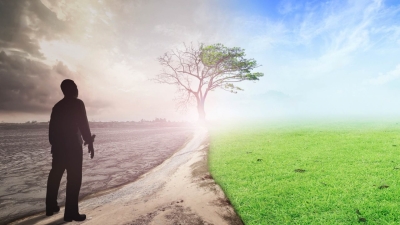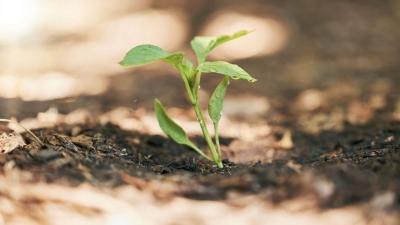Water Scarcity: A Ticking Time Bomb Exacerbated by Climate Change
Wegdan Mohammed

Day after day, we all witness the extent of the risks posed by climate change. However, the most alarming and immediate threat that affects all aspects of our lives is water scarcity, as numerous studies have shown.
The latest study published in the scientific journal Science presented the recent observed phenomena related to the deterioration of freshwater reserves on Earth, particularly in rivers and lakes.
The study revealed a significant decrease in water quantities in most lakes and exposed reservoirs worldwide, which is a ticking environmental time bomb. The depletion of freshwater reserves can be largely attributed to climate change, global warming, and unsustainable water resource management.
This issue is exacerbated by the continuous increase in population surpassing the saturation point of resources and the corresponding level of economic development.
The danger intensifies when considering that climate change-induced disasters do not stop at affecting the Earth and its inhabitants. This includes global warming, drought, desertification, and the scarcity of rainfall, which now threaten the ecological balance on various continents. Lakes, rivers, and water bodies are disappearing and drying up, posing a significant challenge to many countries around the world.
Freshwater is one of the most vital resources on Earth, serving as a primary source of life for plants, animals, and humans. However, climate change has a profound impact on the distribution and quality of freshwater, leading to the drying up of rivers and freshwater lakes. This significantly affects the surrounding ecosystems and directly impacts all human activities.
It is worth mentioning that about 25% of the world's population already lives in areas where surface water from lakes and rivers suffers from drought or evaporation from dam reservoirs. With increased rates of drought, evaporation rates rise, resulting in a decline in water levels in rivers and freshwater lakes.
This phenomenon affects the water quality, increasing the concentration of organic matter and minerals, thus altering both the quantity and quality of water. Deteriorating water quality also affects the plant and animal life existing in rivers and lakes, leading to the death of certain species and a decrease in biodiversity in the region.
Climate change also contributes to increased salinity in water bodies. This occurs due to the declining levels of freshwater in some areas, causing a greater influx of saltwater from seas and oceans into rivers and freshwater lakes.













